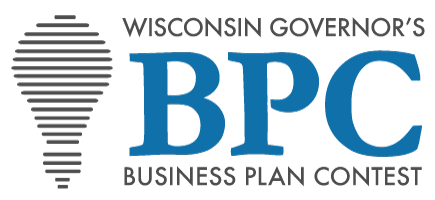05 Jan InsideWis: Governor’s Business Plan Contest can help highlight innovation during tough times
By Tom Still
MADISON, Wis. – What do these companies have in common? Pinterest, Groupon, Mailchimp, Uber, Slack, WhatsApp, Airbnb, Square, Instagram, Google and PayPal. (Hint: It’s more than just tech.)
The first nine companies on the list were born during the Great Recession of the late 2000s and the latter two during the DotCom bust nearly a decade earlier. If you look back to earlier recessions, you can add Microsoft, Apple and even Burger King to the list.
The takeaway is that innovation and opportunity can spring from hard times, such as the economic turmoil produced by rising interest rates, inflation and continued supply chain troubles in 2022. Providing an outlet for some of that creativity to get noticed is the goal of the annual Wisconsin Governor’s Business Plan Contest.
Launched in 2004, the contest has returned for 2023 and is open to young companies and individuals whose ideas may be the next big thing. Maybe not as big as Google or Microsoft, of course, but capable of leaving a mark on the economic map of Wisconsin and beyond.
The deadline to enter online at www.govsbizplancontest.com is Jan. 31 before midnight. At the outset, the contest involves a crisply worded summary outlining the problem a tech-based idea or plan will solve, how it will lead to a successful endeavor, and the kind of competition that may stand in the way. It’s free to enter, is limited to about 250 words at the start of the judged process.
Over time, about 4,450 entries have been logged from 330 distinct Wisconsin communities. About $2.5 million in cash and service prizes have been awarded since 2004 and roughly 475 finalists have raised at least $300 million in grants, angel capital and venture capital.
Most important, those same finalists have a multi-year “survival rate” that is about twice the national average for startups – 77 percent, according to separate surveys conducted by the Wisconsin Technology Council.
The secret of business longevity lies mostly in the skill, adaptability and sometimes stubbornness of the entrepreneurs in charge, but some credit goes to resources that contest entrants may tap once they enter.
Independent judges from a mix of business and investment sectors can offer advice, volunteer mentors may do the same, and there’s exposure to a growing array of services and programs for young companies in Wisconsin. It can take a village to raise a startup.
“First and foremost, it’s an opportunity to get mentorship for your business plan,” said Paige Peters, who led a team from Rapid Radicals, a Milwaukee water-tech firm that won the 2022 contest. “The exposure is fantastic, too, not just for the (grand prize) winner, but for others who advance during the contest. For us, it’s been quite a ride.”
The contest is broad enough in scope to capture most plans. The four contest categories are Advanced Manufacturing, Business Services, Information Technology and Life Sciences. Rapid Radicals, for example, competed in Advanced Manufacturing.
The competition is conducted in phases, which allows entrants to build their business plan in stages between January and early June. Scoring in each stage whittles down the total number of entrants who move on, but there’s value in simply getting feedback on an idea. There are chances to meet other entrepreneurs, as well.
A Tech Council webinar featuring a veteran judge and a 2022 finalist will be held Jan. 18. Individuals, teams of people or companies may enter if they meet a few requirements:
- Are Wisconsin residents 18 years old or older. If it’s a school team, at least one member must be 18.
- Have a business plan that employs or leverages technology. Examples of technology include an eCommerce platform for a traditional business, a mobile application, a life sciences innovation or an advanced manufacturing process or system.
- Are based in Wisconsin or plan to locate a business in Wisconsin.
- Have not received private equity funding for an idea in its current form by the Jan. 31 entry deadline. That includes only angel or venture funding. It does not include federal grants, bank loans, most accelerator program investment or funding from friends or family.
Adversity can bring out the best in many people and businesses, as past economic downturns have demonstrated. Who knows? The 2023 version of the Wisconsin Governor’s Business Plan Contest may provide new examples of success born in tough times.
Still is president of the Wisconsin Technology Council. He can be reached at tstill@wisconsintechnologycouncil.com.



